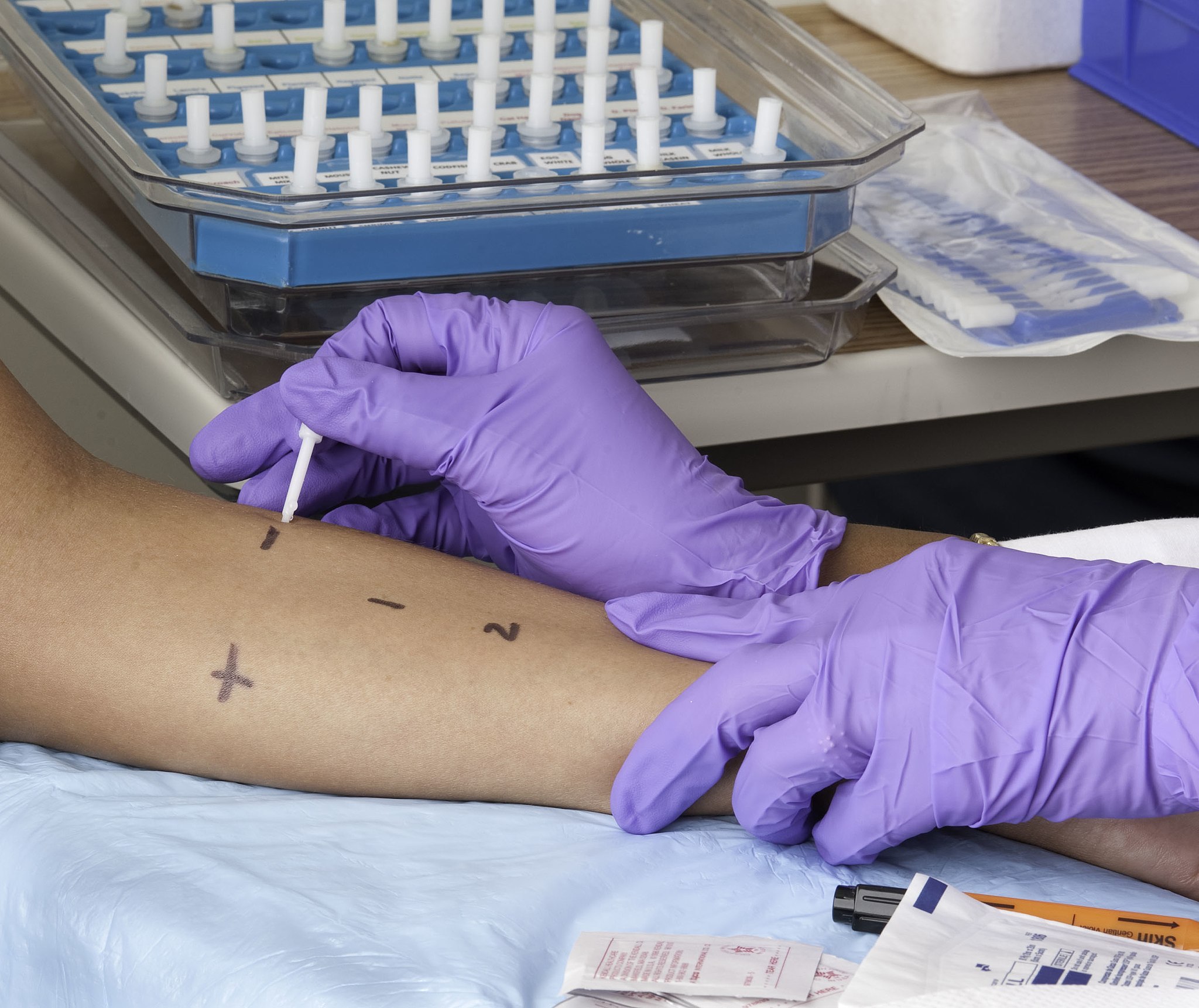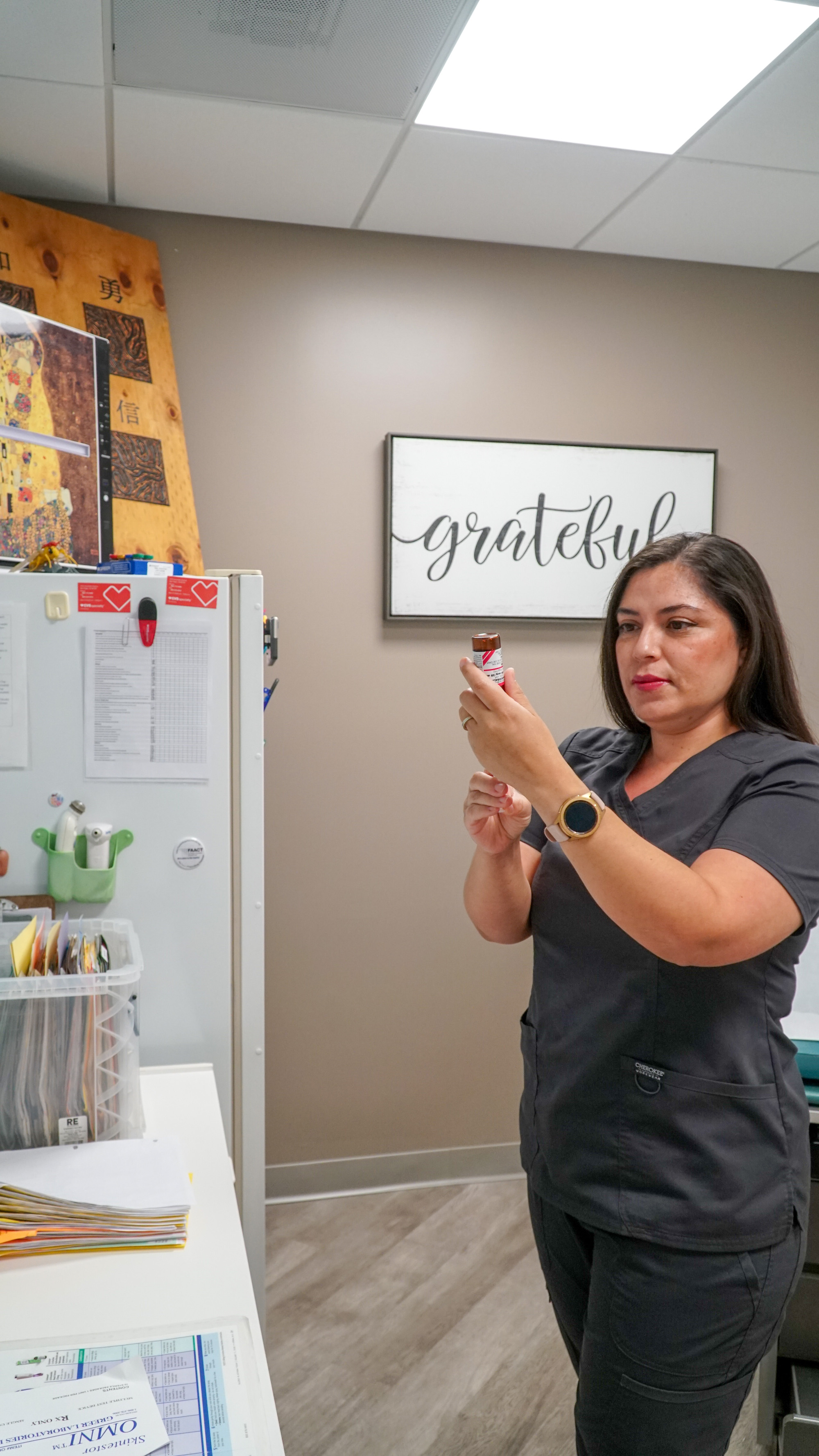Complete your registration forms online on our secure HIPAA-Compliant Patient Portal. This will significantly reduce your arrival time before your initial visit.
Please arrive 10 minutes before your appointment.Download your registartion forms, complete them at your leisure, and bring the forms with you to your first appointment.
Please arrive 20 minutes before your appointment.New Patient Portal Set Up Instructions
In compliance with Health Insurance Portability and Accountability Act (HIPAA), please establish an account online as a new patient through our secure Patient Portal. This allows you
Around-The-Clock access to the system. Set up appointments, receive secure communication, check authorized released labs and medical records, receive reminders and confirmation of future visits.
- Enter a valid E-mail address. You must have access to this email in order to continue the confirmation process.
- A verification code will immediately be sent to your email, use this code to verify account.
- Create a password. This will allow you to complete only the patient registration.
- After you register, our office will be immediately notified. Your account will be activated during regular business hours. You will get an email notifying you of your activated account.
- New patient forms can now be electronically filed prior to your first visit on your schedule. Arrive 5-10 minutes before your new appointment.
- Returning patients: keep your username (email), password, and date of birth to verify Identity, for future access.

What is an Allergy?
More than 50 million Americans suffer from allergic conditions, allergies are the sixth leading cause of chronic illness in the united states, causing decreased productivity and lost time from work and school for millions of individuals.
Physicians have found that allergic diseases can be controlled and their debilitating symptoms can be prevented or minimized. The key is the early diagnosis of the allergic condition and identification of the allergens responsible.
Allergy is defined as the tendency to develop adverse symptoms due to an immune response to normally innocuous substances. A huge variety of agents found in the environment can provoke an allergic response.
Commonly encountered allergens include substances such as mold spores, pollens, animal dander, dust, foods, venoms and drugs. Allergen exposure can occur through inhalation, ingestion, contact with skin or injection- either intentionally as occurs with certain medications or inadvertently as occurs through an insect sting.
The first step in the diagnosis of allergy involves recognition of characteristic symptoms identified from the patient’s clinical history and exam.
Allergy Testing
While a tentative diagnosis of allergic disease can often be made from a patient’s clinical history, many allergic conditions exhibit symptoms that are hard to distinguish from nonallergic conditions. The American Academy of Allergy, Asthma and Immunology recommends the use of objective measures to confirm the diagnosis of allergy in symptomatic patients. Skin testing or in vitro assays of IgE to specific allergens are particularly recommended when:
- Patients present with persistent symptoms that can be associated with specific allergens;
- The condition adversely affects the patients quality of life; and
- Immunotherapy (allergy shots) is contemplated.
Diagnostic testing of the potentially allergic patient serves a number of important purposes including:
- Confirming the diagnosis of the allergy;
- Differentiating allergic disease from other disorders;
- Identifying the offending allergen; and
- Guiding the development of appropriate treatment or allergen avoidance plans.
The most traditionally used diagnostic allergy tests in the United States are skin tests using extracts of specific allergens.
A number of different skin testing techniques are used. The three most commonly used methods are prick, puncture and intradermal. Both skin testing and in vitro allergen-specific IgE testing employ carefully prepared extracts of allergens or, in some cases, liquid allergens themselves.
For prick and puncture testing, a small drop of allergen is places on the skin. In prick testing, a sharp needle is introduced into the skin at an angle and used to lift up the outer layers of skin slightly. This allows the extract to penetrate the skin. In puncture testing, a small lancet or bifurcated needle is introduced at a perpendicular angle to the skin to produce a small puncture, allowing extract to enter. Intradermal skin testing involves the use of a tuberculin syringe and small gauge needle to inject a small amount of diluted extract under the skin.
Skin testing by any of the methods above is highly technique-dependent, and should only be performed by specialist who is trained in proper procedures and interpretation of results.
It is also important that any office performing skin testing have staff available who are able to handle the potentially life-threatening reactions that can rarely occur with the administration of these tests.



How Do You Treat & Prevent Allergies?
How Do You Treat & Prevent Allergies?
Chronic allergy-mediated inflammation and associated infections are thought to cause ongoing mucosal damage and in case of asthma, possible lung remodeling.
A number of studies indicate that early treatment of allergy can change the course of disease progression.
Clinical intervention seems to be most effective if the treatments are initiated before the age of six, increasing the importance of early diagnostic testing.
Goals of Treatment:
- Identify causation. Use skin testing, blood tests (RAST, CAP FEIA), breathing tests, food challenges, Exercise challenges in addition to the history to come up with a reasonable theory for the cause of the disease
- Prevent, or eliminate ongoing exposure
- Use Medication when and only if needed, considering cost and side effect profile, along with interaction with other medication
- Use long term therapy, such as Allergy vaccines to change the immune system when possible
The federal Physician Payments Sunshine Act requires that detailed information about payment and other payments of value worth over ten dollars ($10) from manufacturers of drugs, medical devices, and biologics to physicians and teaching hospitals be made available to the public.”




